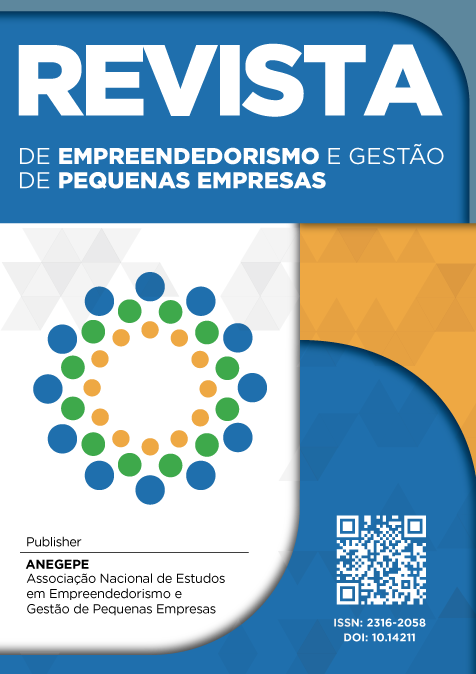Autoria nos Artigos Científicos: Por que a Ordem Importa aos Pesquisadores
DOI:
10.14211/regepe.v8i2.1574Keywords:
Artigos Científicos, Pesquisadores, Autoria nos ArtigosAbstract
O exercício no papel de editora chefe da REGEPE tem trazido experiências e aprendizagens inusitadas. Ora por saber que há dificuldade da parte dos autores em acatarem a política editorial da revista, de aceitarem uma rejeição sem perder a esperança de que o artigo sempre pode ser melhorado, ora pela responsabilidade ao arbitrar o resultado de uma submissão.
Do outro lado, encontramos desafios no contato com os avaliadores, pessoas fundamentais no processo de editoração e guardiões da qualidade técnica-científica de nossa publicação. Essa atividade oculta, missionária e voluntária, embora tenha uma relevância incalculável, tem se tornado mais difícil a cada dia, não pela indisponibilidade ou comodismo, mas pela sobrecarga que todos nós, professores e pesquisadores vivenciamos no cotidiano de nossas atividades profissionais.
É inquestionável a pressão por publicação em periódicos de alto impacto a qual somos desafiados, em decorrência das avaliações dos programas e da demonstração da capacidade cientifica dos pesquisadores, que pode colocar em risco a empregabilidade...
Downloads
References
Biagioli, M., & Galison, P. (2003).Scientific Authorship: Credit and Intellectual Property in Science. New York: Routledge, 2003.
Maddox, J. (1994). Making publication more respectable. Nature, v. 369, pp. 353. DOI: https://doi.org/10.1038/369353a0
Marques, F. (2011). Hierarquia complexa. pesquisa FAPESP, n. 184.
Montenegro, M. R., & Alves, V. A. F. (1997). Critérios de autoria e co-autoria em trabalhos científicos. Acta Botanica Brasilica, 11(2). DOI: https://doi.org/10.1590/S0102-33061997000200014
Petroianu, A. (2002). Autoria de um trabalho científico. Revista da Associação Médica Brasileira, 48 (1), pp. 60-5. DOI: https://doi.org/10.1590/S0104-42302002000100034
Petroianu, A. (2010) Critérios para autoria e avaliação de uma publicação cientifica. Revista de Psiquiatria Clínica, 37(1), pp.1-5. DOI: https://doi.org/10.1590/S0101-60832010000100001
Volpato, G. L (2016). Autoria científica: por que tanta polêmica? Revista de Gestão e Secretariado. GeSec, São Paulo, v. 7, n. 2, p 195-210. DOI: https://doi.org/10.7769/gesec.v7i2.597
Yukihara, E. (2011). Qual deve ser a ordem dos autores de um artigo científico? Ciência Prática, n.13 (maio).
Downloads
Published
Métricas
Visualizações do artigo: 3121 PDF (Português (Brasil)) downloads: 708
How to Cite
Issue
Section
License
Authors who publish in this journal agree to the following terms:
-
The author(s) authorize the publication of the text in the journal;
-
The journal is not responsible for the opinions, ideas, and concepts expressed in the texts, as they are the sole responsibility of their authors;
-
Authors retain copyright and grant the journal the right of first publication, with the work published under the CC BY 4.0
License, which allows sharing the work with acknowledgment of authorship and initial publication in this journal;
-
Authors are allowed and encouraged to post their work (Submitted version, Accepted version [Manuscript accepted by the author], or Published version [Record version]) online, for example in institutional repositories or preprints, as it can lead to productive exchanges as well as earlier and greater citation of published work. REGEPE requires that authors indicate/link the published article with DOI. See the Effect of Open Access.
















